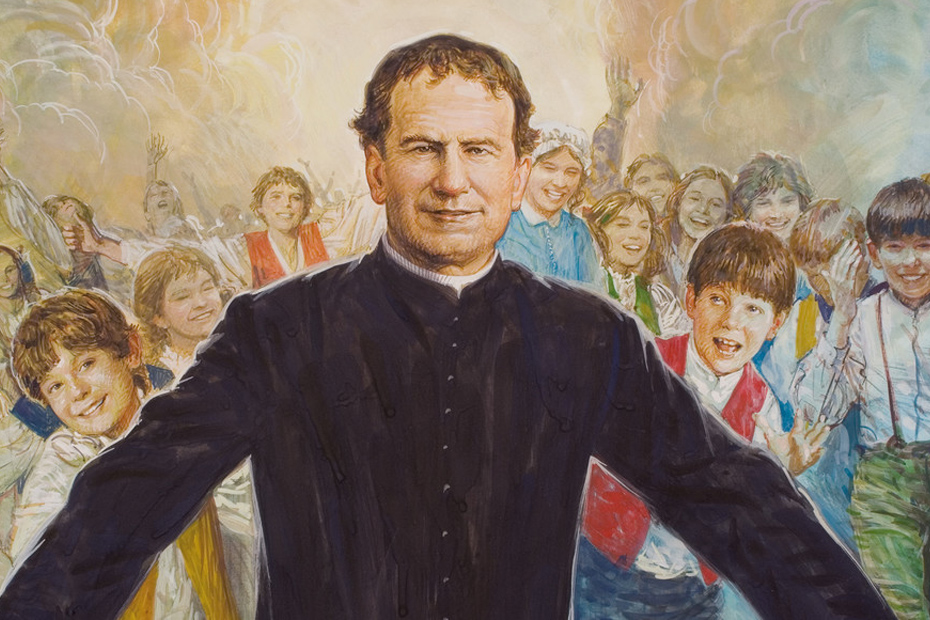By Susan Ciancio
On January 31, we celebrate the feast day of St. John Bosco—an Italian priest from the town of Turin whose unwavering compassion and love for the souls of young men led him to change countless lives.
John Bosco was born in Italy in 1815. His father died when John was just two years old, so he was raised by his devout mother, who taught him about the Catholic faith. John was nine years old when he had a dream about unruly boys. In the dream, he heard a voice (one he attributed to God) that said he must teach these boys right from wrong and the ugliness of sin. When he told his mother, she suggested that maybe God wanted him to be a priest and to work with young men and boys.
John took that dream to heart, and when he grew up, he did become a priest. He then founded the Salesian order and made it his life’s work to minister to young boys living on the streets. He led them to Christ by teaching about Him and leading them away from a life of poverty and crime.
John began opening homes for young boys, housing 40 in the first one. Within six years, the number of boys grew to 150. John also created workshops so the boys could train to be tailors and shoemakers instead of choosing to live lives of crime. He made sure they learned about music, sports, and other subjects—anything to keep them off the streets. He was known as the “friend of boys” and was affectionately called Don Bosco—meaning father.
John died in 1888. At the time of his death, the Salesians had opened 250 houses and were helping 130,000 boys.
One time, when he was a young child, John arrived home a bit scraped up from playing with some rough boys. His mother expressed concern, but he said to her, “Mama, those boys aren’t really bad. They just don’t have a good mother like I have, and they don’t know their catechism, and their parents don’t take them to church. When I’m with them, they behave better.”
Even as a young boy, John had incredible insight into why many of the young boys behaved badly, and he took the responsibility of teaching them about God. It is said that John used to perform magic tricks and circus stunts but that he would only do them if the boys prayed before and after with him.
John knew the importance of involving and welcoming God into every part of his life. He understood that a life without God is devoid of true joy, beset with hopelessness and a fruitless searching for something “more.” Without God, we experience an emptiness that can never be filled, though many try with material things and even drugs, alcohol, or promiscuity.
If we are to build a culture of life here on earth, as St. John Bosco did, we must learn from him and learn to emulate him. He rightly saw that young boys who were lost and alone needed to find the love of God, so he reflected that love to them and taught them about Him.
Today, we see a lot of lost and lonely people in our world. They often express this loneliness through anger, isolation, or even false hubris. Yet if they were to examine their lives, they would acknowledge that the futile trek they have been embarking upon has led to nowhere truly fulfilling.
The joy they are searching for can only be found in the love, compassion, and mercy of Christ.
So let us take some time to reflect on the life and works of St. John Bosco and teach our children about this amazing priest. Emulating him begins in our homes with teaching our children about God, taking them to Mass, and reading about our faith. And then it extends outward to our friends, family, and coworkers.
As we read in the Gospel of Matthew: “Nor do they light a lamp and then put it under a bushel basket; it is set on a lampstand, where it gives light to all in the house. Just so, your light must shine before others, that they may see your good deeds and glorify your heavenly Father.”
St. John Bosco lived this gospel verse, and if we want to build a culture of life and lead our children and neighbors to God, so must we.
